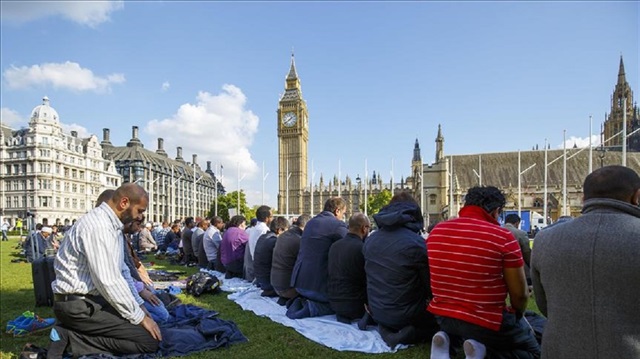
New generations better educated, more connected but still face discrimination, says Bertelsmann Foundation survey
Muslims in Europe are well-integrated into mainstream society but are not fully accepted by all, according to a new study released by the Bertelsmann Foundation in Germany.
The Religion Monitor 2017 surveyed education, working life and interreligious contacts of Muslims in Germany, Austria, Switzerland, France and the U.K., which are home to nearly 14 million Muslims.
The representative survey found that second- and third-generation Muslims had a better command of the national language, were much better educated and, despite continued discrimination, were also successful in the labor market.
France has been the most successful country for linguistic integration, followed by the U.K.
Over 90 percent of immigrant children in France have grown up with the French as their first language, and 80 percent of Muslims born in the U.K. learned English as children.
In the second generation, less and less Muslim children were leaving school before their 18th birthday. Nearly 67 percent stayed in school past their 17th birthday.
Germany and Switzerland have been the countries where Muslims were the most successful at integrating into the job market.
"In both these countries, the rate of gainful employment among Muslims no longer differs from that of the total population,” the report said.
However, it also underlined that Muslims were earning significantly less, especially in Germany, as they were more often employed in low-wage positions.
-Interreligious contacts
The successful integration was particularly notable in increased social contacts between Muslims and non-Muslims, according to the report.
"Seventy-five percent of Muslims regularly spend their free time with non-Muslims. Interreligious contact also increases with each generation, as does identification with the receiving country.
“Overall, nearly all of those surveyed (94 percent) feel connected to the country where they live,” the report noted.
-‘Islam not hindering integration’
Bertelsmann Foundation expert Stephan Vopel underlined that Islam was not an obstacle to successful integration in Europe, despite such claims made by far-right politicians.
"Islam is not an obstacle to integration. Muslims, even the highly religious, learn the new language and strive for higher education levels just as much as other immigrants,” he told a news conference in Gutersloh, Germany, where the research group presented the outcome of their survey.
"When integration stalls, the state framework conditions are usually the reason,” Vopel also said.
-Discrimination in labor market
The report revealed that despite progress made in integration, Muslims who profess their faith and practice their religion often encounter discrimination in labor market.
"So far, no country in Western Europe has found a convincing balance of equal opportunity and respect for religious diversity,” Yasemin El-Menouar, the author of the report said, adding that highly religious Muslims faced more difficulty finding a job that corresponded to their qualifications.
While European governments have taken various initiatives to promote participation of immigrants in social and economic life, Muslims continue to encounter open rejection from about one-fifth of the population, according to the survey.
Nearly 20 percent of Europeans interviewed for the survey said they did not want to have Muslims as neighbors.
The Bertelsmann Foundation’s report was based on a representative survey conducted at the end of 2016 in Germany, Austria, Switzerland, France and the United Kingdom.


